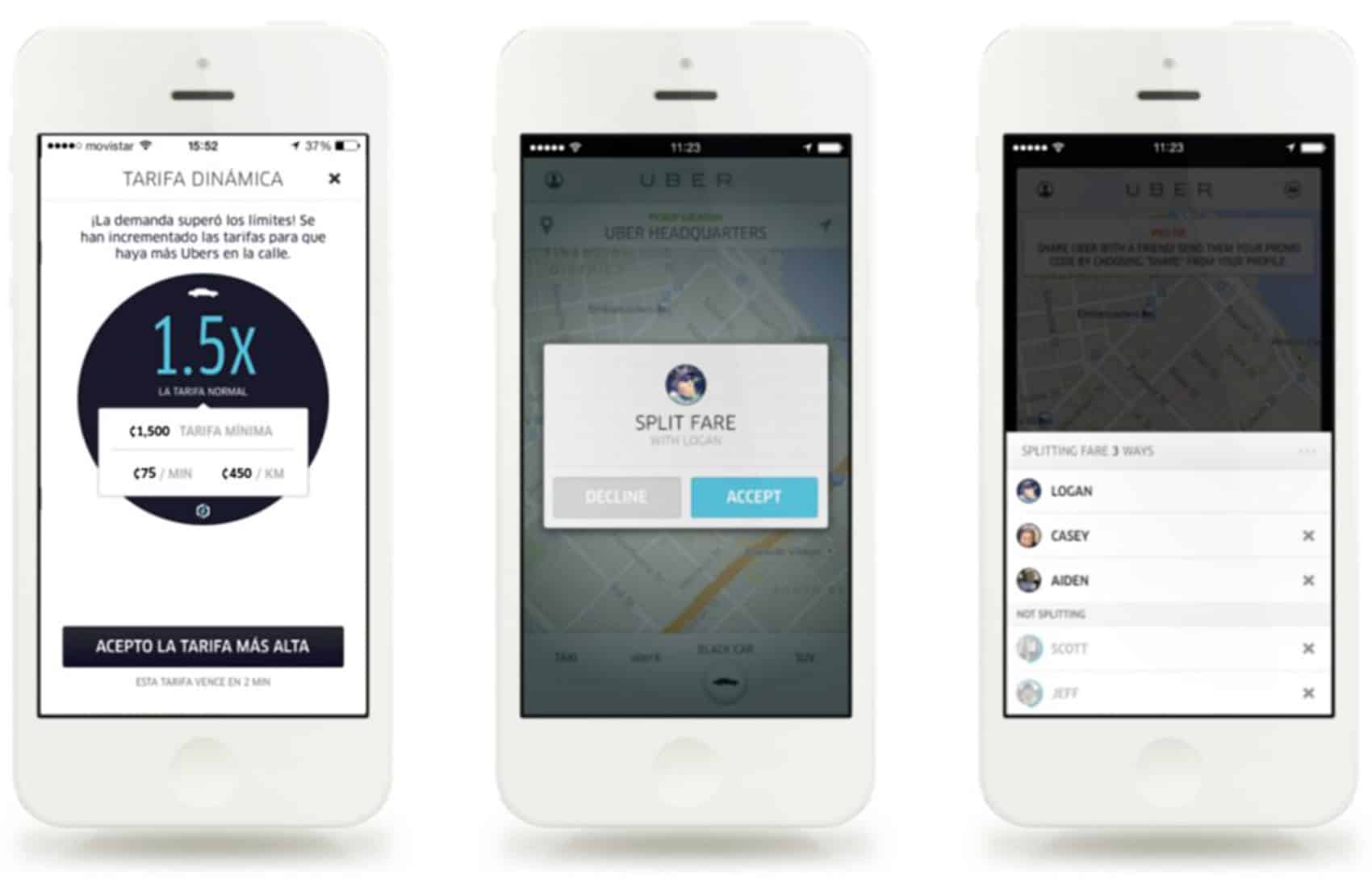The ride-hailing app Uber will continue operating in Costa Rica, as both the Public Services Regulatory Authority (ARESEP) and the Public Transportation Council (CTP) have ruled out blocking the software.
The rulings, issued on Wednesday, responded to complaints from taxi drivers’ unions who demanded the agencies block the app. The unions maintain that Uber’s operations in Costa Rica are illegal.
The agencies, however, concluded that they do not have the authority to block an app; currently, Costa Rica has no legislation allow them to do so.
None of the ARESEP’s founding laws authorize the agency “to block a technological system, digital platform, or social network,” the ruling said, adding that not even ARESEP’s Telecommunications Superintendency has the legal authority to halt the operation of a mobile app.
ARESEP cited a ruling from the Government Attorney’s Office concluding that public entities do not have the power to block software or a mobile phone app, even if it is being used by third parties to offer unauthorized services.
The administration of President Luis Guillermo Solís has said that it has no plans to block Uber.
Taxi drivers to the streets
Rubén Vargas Campos, secretary general of the taxi drivers’ union, told Channel 7 Telenoticias on Wednesday evening that the rulings were “a mockery” and that taxistas will respond with a country-wide demonstration.
He said they will protest on the streets in late June or early July to demand that ARESEP and the CTP block the Uber app.
According to Vargas, both agencies have legal powers to do so, but “they just won’t do it because of their unbelievable incompetence.” He said taxi drivers will maintain their fight against Uber using legal options, but warned that he is afraid the situation could get out of control.
“God forbid, but there could even be dead people in the streets,” he said.
Vargas has said that if ARESEP and the CTP want to “get rid of taxi drivers, they will gladly retire and go home after the agencies pay each one of them ₡120 million (some $207,000) in compensation.”






